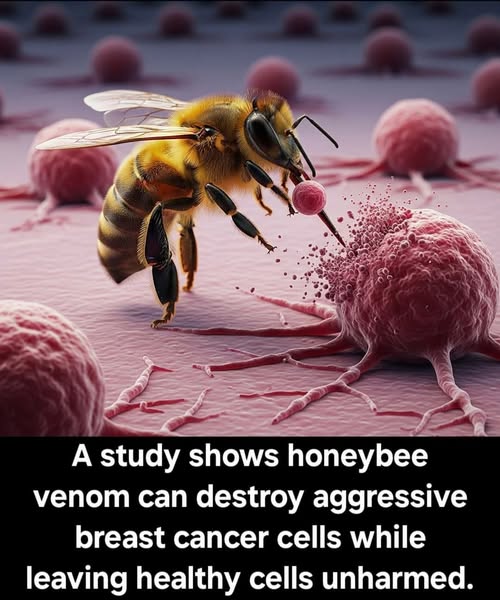ADVERTISEMENT
Honeybee venom has been found to induce cancer cell death in aggressive breast cancer according to new research by a team at the Harry Perkins Institute of Medical Research and The University of Western Australia.
Using the venom from 312 honeybees and bumblebees in Western Australia, Ireland and England, Dr Ciara Duffy tested the effect of the venom on the clinical subtypes of breast cancer, including triple-negative breast cancer, which has limited treatment options.
Results published in npj Precision Oncology revealed that honeybee venom rapidly destroyed triple-negative breast cancer and HER2-enriched breast cancer cells.
Dr Duffy said the aim of the research was to investigate the anti-cancer properties of honeybee venom, and a component compound, melittin, on different types of breast cancer cells.
“No-one had previously compared the effects of honeybee venom or melittin across all of the different subtypes of breast cancer and normal cells,” she said.
“We tested honeybee venom on normal breast cells, and cells from the clinical subtypes of breast cancer: hormone receptor positive, HER2-enriched, and triple-negative breast cancer.
“We tested a very small, positively charged peptide in honeybee venom called melittin, which we could reproduce synthetically, and found that the synthetic product explained the majority of the anti-cancer effects of honeybee venom.
“We found both honeybee venom and melittin significantly, selectively and rapidly reduced the viability of triple-negative breast cancer and HER2-enriched breast cancer cells.”
Dr Duffy said the honeybee venom was extremely potent and a specific concentration of venom could induce 100 per cent cancer cell death, while having minimal effects on normal cells.
“We found that melittin can completely destroy cancer cell membranes within 60 minutes,” she said.
Melittin in honeybee venom was also found to have another remarkable effect; within 20 minutes it was able to substantially reduce the chemical messages of cancer cells essential to cancer cell growth and cell division.
“We looked at how honeybee venom and melittin affect the cancer signalling pathways, the chemical messages that are fundamental for cancer cell growth and reproduction, and we found that very quickly these signalling pathways were shut down,” Dr Duffy said.
“This study provides another wonderful example of where compounds in nature can be used to treat human diseases.”
ADVERTISEMENT
